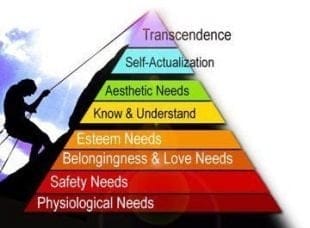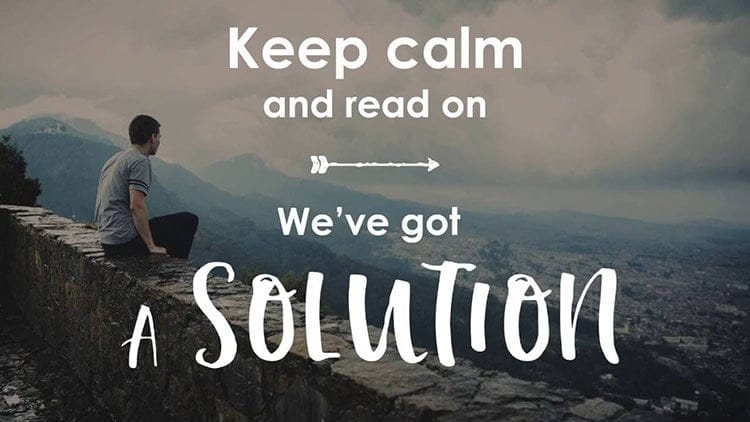Introduction
Learned Helplessness is a formidable barrier that often impedes individuals from realizing their full potential, despite possessing the necessary skills and resources. In our exploration of this psychological phenomenon, we delve into its intricacies and offer strategies for triumphing over its grasp.
Learned Helplessness: Case Study Unveiling its Impact
Student: Ma’am, I am not capable to host that event. The last time I went on stage, I forgot my lines out of stage fright. But my class teacher sees this as the best way for me to overcome my anxiety. She is adamant to get me on that stage.
School Counselor: I see. We will look at ways to help you with forgetting lines. But once that part is taken care of; what according to you can be done about stage fright.
Student: If I can learn remember the lines, it would be a good start. But you know I don’t have the skills for Public speaking and hence the stage fright.
School Counsellor: So what could possibly help you cultivate skills then?
Student: I don’t know, maybe join a crash course in Public Speaking?.. But I can’t. The event is on next Monday.
School Counselor: In that case, could other options like watching YouTube videos of powerful spokespersons help?
Student: Definitely. But I don’t own a computer.
School Counselor: Do you think anyone you know could help you here?
Student: Oh, of course, yes, a friend of mine owns one. I could speak to him and probably go to his place for some time for the next few days.
School Counsellor: That is great. In our next session, we shall work on the ‘forgetting lines part’. Remember, to prepare well and for all you know, you’ll do a great job.
Student: Maybe. How do you have the answers to all my problems?
School Counselor: I don’t. You do. Sometimes you may need assistance to find your resources, but trust me, in the end, you will.
The above conversation is a very good example of learned helplessness. It also hints towards a very important Neuro-Linguistic Programming Presupposition i.e. everyone already has all the resources they need.
What is “Learned Helplessness”?

Learned helplessness refers to a mental state where a person is convinced that they have no control over their situation, that there is nothing they can do to come out of their current situation, to resolve their problem or to reduce their pain (generally emotional).
Because of this conviction, they stop looking for or overlook opportunities for relief or change.
Very often we give up on our aspirations after initial shortcomings because of this reason. We tend to miscalculate our own resourcefulness and capabilities. At times we miscalculate our ability to arrange for new resources. However, we need to remember the tagline of this article every time we think that we have exhausted our potential: Sky Is the Limit.
Overcoming Learned Helplessness
Remember everyone already has all the resources they need:
There is never going to be a situation you can do nothing about. You may need to work hard or may need to have patience but you will almost always be able to do something, no matter how small a step that may seem.
Did you lose a job in downsizing?
Try getting another one.
There is no job that suits your work profile?
Create one for yourself.
You don’t have the capital to start your own business?
Get someone else who can invest instead.
You can’t convince anyone to do so?
Prepare a good business plan or Pick up a crash course in communication skills to present that plan persuasively.
Focusing on this NLP presupposition and applying it in your life can help you resolve at least the smaller elements of a problem if not for the bigger ones directly (in this case, unemployment). As you resolve the smaller elements one at a time, the bigger one begins to become more manageable. It is like going up a ladder one step at a time.
We need to realise that the control switch to all our problems lies with us. We just need to find it in the dark-room of learnt helplessness. This helplessness comes from our desire to achieve whatever we want at one go. However, a child doesn’t learn to walk without falling a million times before. We need to take out our primary school books and understand the proverb—Failures are the stepping stones to success—in its true sense.
Standing in an art gallery, we admire the beauty of the ‘whole picture’, don’t we?
We extremely rarely remark, “Hey that mountain looks beautiful. Or that hand looks so tender.”
Have you ever stopped to give heed to the process that took place before the painting acquired its outlook?
Let’s do it now.
First and the most important fact is that the painting started off just as a plain white canvas. This can be used as a metaphor to represent ourselves in our raw form.
Now, do you think that the painting could have ever existed without the canvas?
No.
This must make you realize that you’re the biggest resource in yourself.
Next comes the skeleton of the painting—a few planned strokes and some random ones. This is how you start off on your journey of purposefully (and sometimes luckily) gathering and putting together resources.
The depth of colours filled in the painting later, indicate the amount of effort you’re to put to achieve the desired end result.
Now take a step back and admire the painting of life you just created for yourself!
Wasn’t the above-given procedure of pursuing life goals less burdening than the standard one that we use?
Instead of just getting infatuated by the bigger picture, at first sight, we may need to start seeing things in ascending order of occurrence. Seeing the world that way will make you experience a sense of gratitude, patience and humility because the bigger picture will not be what you aim for but what it will culminate into after sustained efforts towards articulating it.
The journey has to be, if not more than, at least as important as the destination.
In the Mirror House of Life, we shouldn’t lose track of the real reflection of who we are. Sometimes, it is extremely essential for us to realize that the resources we have don’t match the goals we have set. In such cases, we should alter or chunk our goals down (at least in the short run) to fit the available resources we have.
This slight modifications made on our part may actually make us feel satisfied with the choices we have made. As we achieve these smaller goals we automatically start moving closer to the original bigger goal.
For instance, after a long maternity break, Pooja wishes to continue contributing to the field of psychology. She wishes to start an NGO but realizes that she lacks resources both financial and Human. So to start with she joined an NGO working closely for children with mental disability.
This enabled her to stay in touch with what she loved and simultaneously contributed herself to those in need. Over a period of time because of the experience she gained and the network of people she interacted with, she was able to create a team and arrange for finances to start her own NGO (or in some other case she may even rise to the top of the NGO she originally joined).
Isn’t this NLP presupposition very optimistic in itself?

It makes us realize our true potential and provides us with an alternative worldview. It can, in fact, be called the key to self-actualization and self-transcendence.
It enables us to accept ourselves for who we are and love ourselves for being a pool of precious resources ourselves.
We may not have all the internal resources for reaching the summit, but we sure have enough resources to attract other vital internal and external resources to reach there.
Once this understanding becomes a part of your being, you will notice that it is far more easier to free oneself from learned helplessness then what we may have originally thought.
Therapist Niche:
As a therapist, this understanding is a crucial one. People have all the resources, if not we help them create some. Our role by no means is to provide the resources on a platter (in most cases it is almost impossible); it is to:
- Enable the clients to become aware of available resources,
- Help them explore ways of generating more resources and
- Apply these resources effectively in a way that drives them closer to the desired outcome.
Models from Coaching can provide many such insights. The SOFT SEA™ (created by ICHARS) can be a very useful way to carve the path to accomplish an outcome. Processes from NLP like the perceptual position, Levels of Transformation and Metaphors (used in conversational Hypnosis) can unleash multiple areas of possibilities. People become aware of desired skills and states or additional inputs through these processes that could be applied to achieve goals.
Hypnosis, support, motivation and encouragement from the therapist put together can make the journey of applying these discovered resources easier and faster.
If you are a psychologist who would like to develop advanced therapeutic skills based on a unique model that seamlessly integrates different approaches to psychotherapy (cognitive, behavioural, psycho-dynamics and humanistic) with techniques from Clinical Hypnosis, NLP, Mindfulness & Metaphor therapy, you must checkout the Cognitive Hypnotic Psychotherapy™ Program.


